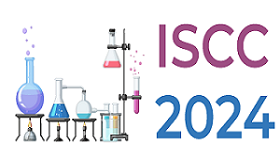ISCC 2024

Université de Toulouse, France
Abstract:
Microbial contamination of the surface of building materials and subsequent release of microbial particles into the air can significantly affect indoor air quality. Avoiding the development or, at least, reducing the quantity of microorganisms growing on building materials is a key point to reduce health risks for building occupiers. In that context, the antimicrobial activity of TiO2, ZnO and Au/ZnO was assessed by measuring log reductions of Escherichia coli and Aspergillus niger populations both in the dark and under a light intensity close to real-life conditions. The bactericidal activities (≥2.3 log reduction) of tested products were stronger than their fungicidal activities (≤1.4 log reduction) after 2 h of contact. Different parameters including concentration of photocatalyst, intensity of light (dark vs. 5 W/m2 UV-A), and duration of contact between photocatalyst and microbial cells and spores were investigated. Results of this study confirmed bactericidal activities of TiO2, ZnO and AuZnO on E. coli and brought new insight on their fungicidal activity on the spores of A. niger. They also confirmed the greatest antimicrobial efficiency of ZnO compared to TiO2 and its increased photocatalytic activity when decorated with Au, leading to the highest log reductions detected after 2 h of contact for both tested microorganisms (4 and 1.4 for E. coli and A. niger, respectively). The antimicrobial activity was enhanced by the duration of contact between microorganisms and nanoparticles of the different tested photocatalytic products.
Biography:
Mohamad AL HALLAK, Holder PhD from University of Toulouse 3, my research project is on ‘Investigation on air and materials contaminations by fungi and their particles’ aerosolization to improve IAQ’. Currently, I am teacher in the University of Toulouse 3 and I continue my research in parallel.
